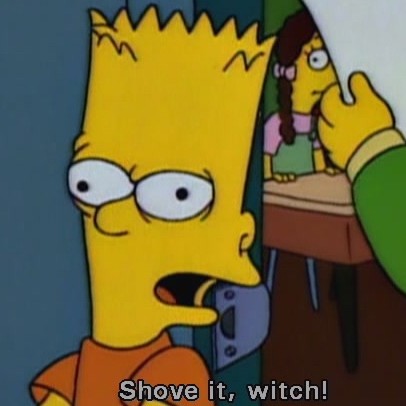ASSESS #1 : REFLECTION
In the past, myself and blogging have been in a love-hate relationship. I enjoyed being able to express my ideas, opinions and interests on an online domain, available for all to potentially see – but also groaned and grizzled at the thought of its tediousness and up-keep. This ‘Sad Sally’ mostly occurring when being prodded and poked into blogging, as mentioned in Blogging 4 Life. As also talked of in this post however, my tune has changed toward the task of blogging, and for the better. Since enrolling in the Networked Media course to up my skills in online literacy and communication, I now realise the benefits of blogging online for both educational and personal purposes. As raised by Adrian Miles (2006) blogs allow you to write using a range of voices, including scholarly, humorous, conversational, professional or personal. Which is comforting to hear, as I now know that I can use a voice that I believe will avail my authorship and help in the development of my own online persona, that will be further seen in the future development of my online presence.
Blogging as Miles (2006) contends, also creates an “interlinked, networked, fluid and distinctly contemporary writing practice and communicative space” (p.66). To which I can swear to, as having experienced such an encounter with online communication and having learning further of intertextuality, hypertexts and hypermedia within online platforms. As demonstrated by posts in week four and week five. Further, I have applied skills and established myself as a hypertext blogger by commenting on the blog posts of other university students and by continuously linking to people’s blogs/websites from within my own posts, see City Calm Down @ The Corner and Thank U Tastekid. By doing so, in acknowledging the ideas and works of other people, I have written with an awareness that I am writing in the presence of other texts (Landow 2006). And I have also become and active member of a “larger community” (Miles, pg. 67). Therefore also advancing my skills in network literacy, as raised by Miles (2007), as I have been able to functionally participate as a peer within the emerging knowledge networks “that are now the product of the internet…and to have as deep an understanding of the logics and protocols of these networks” (p.27).
Having furthered my position as an individual creating content on an online platform, a Creative Commons license has been featured on the side and bottom of my blog to assure that my work is safe for sharing. By having this license people are free to read and redistribute my work, as long as acknowledgement is given. And I can do the same with the works of other people with the Creative Commons license, or those with fairly flexible copyright agreements. In letting others use my words or ideas or graphics, and vice versa, I have assisted in the continuation of the ever expanding hypertextual ‘docuverse’ and asserted my network literacy onto the internet.
Having fully explained and demonstrated the skills and understandings I have acquired throughout the course of this Networked Media class, I can surely say that I now have a stronger affiliation and appreciation for blogging, networked communication and online presence. Writing what I like, and how I like, is truly enjoyable now. I’ve come far since the grizzy-gut blogger in Media One.
References:
Landow, George P. Hypertext 3.0: Critical Theory and New Media in an Era of Globalization. Baltimore: John Hopkins University Press, 2006. Print. 69-71, 77-85, 107-124
Miles, Adrian. Blogs in Media Education: A Beginning [online]. Screen Education, No. 43, 2006: 66-69.
Miles, Adrian. Network Literacy: The New Path to Knowledge [online]. Screen Education, No. 45, 2007: 24-30.
